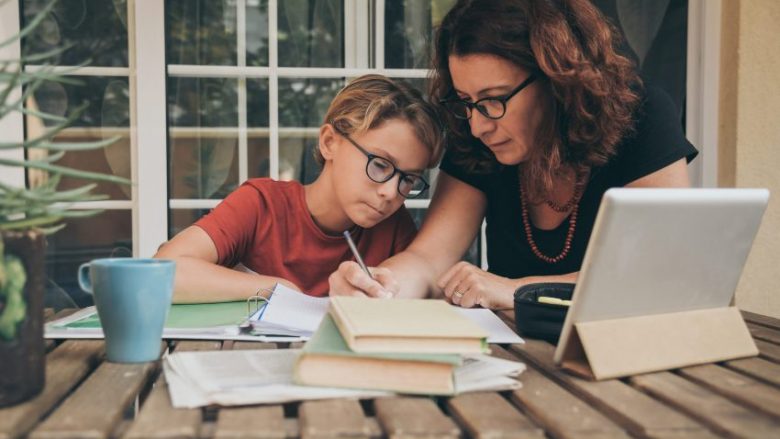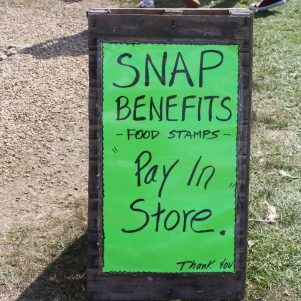More Homeschoolers On the Way? Some Think Coronavirus Emergency May Make Converts
By Tom Joyce | April 5, 2020, 16:42 EDT

Only a small percentage of students and parents across the state do it, but supporters of homeschooling say the coronavirus pandemic could change the way some Massachusetts students are educated long-term.
As of the 2017-2018 school year, just 3.04 percent of the Bay State’s K-12 students were homeschooled (30,715 out of 1,009,367), according to A2Z Homeschooling. However, the state’s education system has undergone a major change since then.
Massachusetts Governor Charlie Baker shut down all public and private schools across the state starting on March 17, and now they will not be open until at least May 4. That leaves many students without a formal education plan for the time being because not every district has a distance learning program set up. And even if they have an internet connection to their school, any learning students are doing is taking place at home.
That makes what many students in Massachusetts are doing right now look something like homeschooling.
School choice and homeschooling advocates think now that many parents are giving homeschooling a try, some will like it and stick with it.
Bob Jacobson, the co-founder of MassHOPE (Massachusetts Homeschool Organization of Parent Educators), says he expects an increase in the number of homeschooled Bay State students in the 2020-2021 school year.
Jacobson noted that even if just 1 percent of public school students switch to homeschooling next year, that would increase the number of homeschooled kids in the state by about one-third.
“As millions of children are suddenly and unexpectedly thrust into some form of homeschooling, we hope that parents will avail themselves of resources that will help them to know the fulfillment that so many have found in the closer relationships that can develop through time spent learning together,” Jacobson said in an email message to New Boston Post. “No one knows and loves a child more than the parent. We believe parents are capable of being the prime director of a child’s education in ways that can be tailored to the individual for the best results.”
“We hope that many more will join us,” he added.
J. Allen Weston, executive director of the National Home School Association, says some parents will experience for possibly the first time what he sees as an overlooked aspect of homeschooling: family bonding time.
“Most schools have provided guidance as to what parents should be doing during their children’s time away from school but a great many parents are discovering all of the real benefits of true homeschooling,” Weston told New Boston Post in an email message. “Benefits such as the freedom it brings, the effectiveness it has to help children actually learn things and retain them as well as how it brings families together.”
Michael P. Donnelly, a staff attorney for the Home School Legal Defense Association, is another homeschooling advocate who thinks this situation will help draw more parents to homeschooling. However, he acknowledges the current circumstances are not exactly the same as normal homeschooling and says the experience would be better once the pandemic is over.
“The essence of homeschooling has always been freedom and flexibility with more open schedules driven by children’s interests,” Donnelly told New Boston Post in an email message. “Remembering that education is not a place and learning can happen anywhere is a good mindset to have even as families focus on creating stability and support for their children.”
“We all need to be creative as the pandemic has reduced the availability of some typical homeschooling opportunities like museums, parks, and co-ops,” he added. “Virtual museum tours and Zoom play dates show how technology can help fill in some gaps, but it is definitely O.K. to let children play more, sleep more, and have more unstructured time. Kids can still learn plenty as homeschooling allows students to accomplish much more in less time because of high concentrations of key learning ingredients like one-on-one interaction, high levels of academic engagement. and an overall less distracting environment.”
Corey A. DeAngelis, the director of school choice at the Reason Foundation, told New Boston Post he thinks there will likely be many students who never return to traditional public school. However, DeAngelis noted there is still one barrier for those who want to homeschool their children: cost.
“Some portion of these families are going to realize that their kids can actually learn a lot at home and continue homeschooling,” DeAngelis wrote in an email message. “Although some families will realize they like homeschooling, it still may not be a feasible alternative financially. Education savings accounts (something I like to call universal education income) would help offset the costs of homeschooling.”
According to Time4Learning, the cost to homeschool one student — excluding time spent by parents — typically may be as little as $700 or as much as $1,800 per year.
An educational savings account, as DeAngelis explained in 2017, would allow parents to use a portion of the money that would have been spent on their child in public school and put it towards various expenses for an alternative to public school. This could include materials used in homeschooling, online education fees, tutoring, college costs, or private school funding. DeAngelis argues it would be better than a private school voucher program because it would allow more flexibility for parents.
Opponents worry that educational savings accounts would result in less funding for public schools. The state of Tennessee, for instance, which has tried to implement them, has been sued by public school advocates who argue that the policy violates the state constitution’s guarantee of an adequate education for children, according to ChalkBeat.
DeAngelis noted that the average K-12 cost per pupil in public schools in the United States is $15,424 a year. The program he suggests would allow poor families to put a portion of that money toward education, if they choose to homeschool their children.
A spokesman for the Massachusetts Department of Elementary and Secondary Education could not be reached for comment.
The Boston Teachers Union, Massachusetts Teachers Association, National Education Association, Learning Policy Institute, and Association of American Educators also could not be reached for comment.











